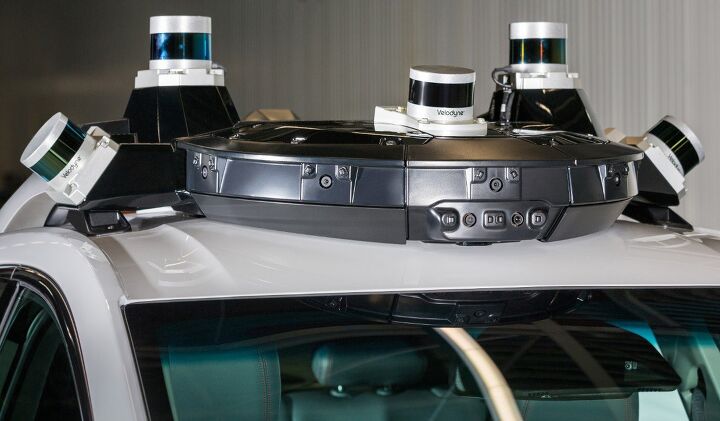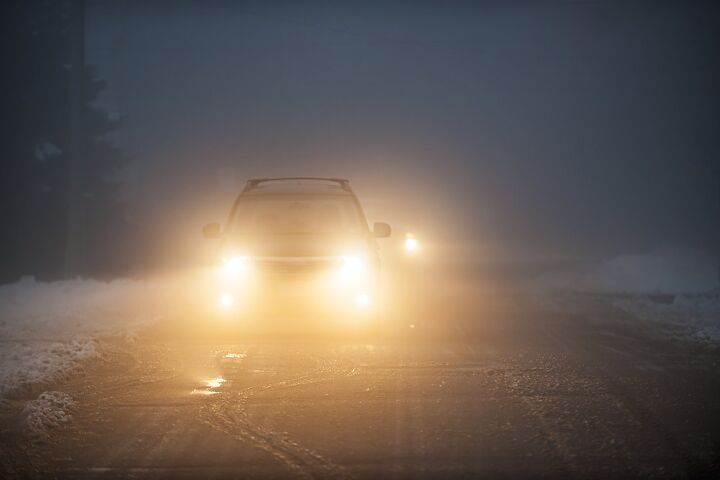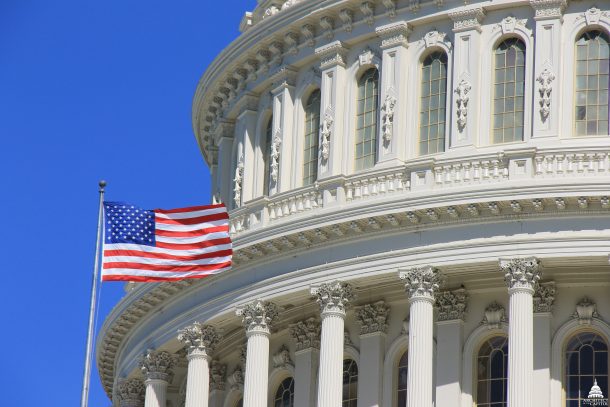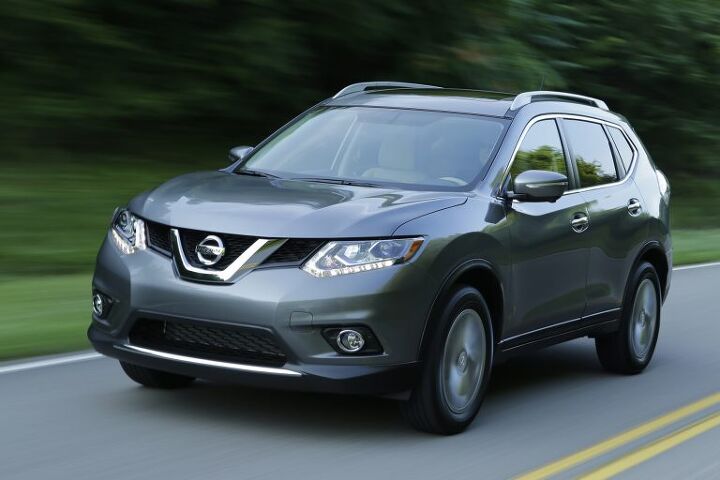#NHTSA
Ford and Stellantis Recall Bigger Vehicles for Smaller Problems
Ford and Stellantis are issuing recalls on some of their biggest models — figuratively and literally — this week. But the issues are quite a bit less dire than the repeat fire risks you’ve probably grown accustomed to. These defects will still allow customers to park their vehicle indoors without fear of awakening to a raging inferno emanating from the garage. Owners could probably even get away without having their cars fixed by the manufacturer until the relevant parts actually started breaking. Though why anybody would turn down free repairs on any component that didn’t pass muster is beyond me.
Impacted vehicles include 2021-22 model year Dodge Durango SUVs, 2019-22 MY Ram 2500 pickups, and 2019-22 MY Ram 3500 Chassis Cab trucks with a gross vehicle weight rating (GVWR) under 10,000 pounds, all with bunk electronic stability control (ESC) warning lights. According to the National Highway Traffic Safety Administration, an estimated 375,000 vehicles should be affected. Meanwhile, Ford is only looking at 175,000 units of the 2021 F-150 pickup with bum wiper motors.
NHTSA Says Human Controls Now Unnecessary for Autonomous Vehicles
The National Highway Traffic Safety Administration (NHTSA) had decided there’s no need for modern vehicles to possess steering wheels, pedals, or other human controls — provided they’re intended to be fully autonomous.
Considering self-driving cars have become something of an engineering boondoggle after the automotive industry falsely claimed they’d become commercially available by 2019, it’s easy to assume regulators are putting the cart before the horse. But we need to remember that automakers have wanted this for a long time, are used to getting their way, and have well-paid lobbyists at their disposal. For example, General Motors and its autonomous technology unit Cruise has long been petitioning the NHTSA for permission to manufacture and field self-driving vehicles without human controls.
Gas War: EPA Reinstates California's Ability to Set Emission Limits, EV Mandates
The U.S. Environmental Protection Agency has opted to reinstate California’s ability to set tailpipe rules and zero-emission vehicle mandates that are more rigid than federal standards. After quarreling for years over the Trump administration’s decision to roll back Obama-era fueling standards deemed untenable, the Golden State now has the ability to once again make harder for its citizens by forcing them to purchase the kind of vehicles it feels they should be driving — rather than leaving it up to the individual that’s actually buying the car.
Though it might not matter at this point. While California effectively served as a defensive shield against proposed fueling rollbacks while Trump was in office, the Biden administration strategy is broadly in line with its agenda of making gasoline unappetizing to consumers to ensure a speedy transition to electric vehicles. California doesn’t even want people to have access to gas-powered lawn care equipment. The state has effectively served as a test case for Build Back Better since before the phrase passed through the lips of a single politician.
NHTSA Looking Into Tesla Vehicles Over 'Phantom Braking'
The National Highway Traffic Safety Administration (NHTSA) has announced it is investigating 416,000 Tesla vehicles after receiving 354 individual complaints of unexpected braking.
America’s largest purveyor of all-electric vehicles was forced to cancel its push of version 10.3 of its Full Self-Driving (FSD) beta software last fall after receiving reports that it was creating problems for some users. Drivers were complaining that the update had created instances of phantom braking after the vehicle issued false collision warnings. However, things only seemed to get worse as complaints to the NHTSA grew more frequent after bumping FSD back to an earlier version.
Adaptive Headlights Becoming Legal in United States
On Tuesday, the National Highway Traffic Safety Administration (NHTSA) announced it had finalized a rule permitting automakers to install adaptive driving beam headlights on modern vehicles. Despite having pioneered automatic headlamps in the 1950s, the United States has been hesitant to implement automatic leveling and directional beams. In fact, imported vehicles equipped with adaptive headlights have been modified to adhere to regional safety laws for decades.
But the implementation of light-emitting diodes, high-intensity discharge lamps, and even upgrades to tungsten-halogen bulbs has made forward illumination substantially brighter. If you’ve been driving a while, you’ve probably noticed increased glare from oncoming vehicles (especially if you’re in an automobile that’s situated closer to the pavement). Directional beams are supposed to help alleviate the problem and have been getting more attention from U.S. safety regulators. However, that’s only part of the reason why the NHTSA suddenly feels better about approving them.
NHTSA Moves Closer to Having First Administrator Since 2017
It may be getting difficult to remember, but the U.S. National Highway Traffic Safety Administration (NHTSA) used to have someone who was formally in charge. They were called an administrator and Americans used to be able to rely on the government nominating and then confirming these within a year of their predecessor leaving office. The position has always been political, often filled by lobbyists deemed acceptable by whatever the dominant political party of the day happens to be. But things have been different in the 21st century, with the NHTSA frequently being ran by “acting administrators” who are just supposed to be placeholders until Congress can confirm a valid replacement.
The agency hasn’t had an official leader since 2017 when Mark Rosekind left the organization to become the head of safety innovation for autonomous vehicle startup Zoox. NHTSA has had a few interim bosses since then, with Steven Cliff filling the void since February of 2021. However he just moved a little closer to removing the word “acting” from his job title.
Tesla Recalls 54,000 Models Over 'Rolling Stops'
Tesla is recalling 54,000 cars equipped with its Full Self-Driving (FSD) software over a feature that allows vehicles to roll through stop signs under the right conditions.
While technically still in beta and incapable of legitimate (SAE Level 5) self-driving, the software suite has been a premium item on Tesla products for years. Introduced in 2016, FSD was originally a $3,000 addition to the company’s $5,000 Autopilot system and allowed customers to financially embrace the promise of total automotive autonomy that’s supposedly forthcoming. Features have improved since 2020, when the public beta was officially launched, however the company has remained under criticism for failing to deliver the goods. Among these were allegations that the latest version of FSD allowed vehicles to conduct rolling stops through some intersections. The issue resulted in the public flogging of Tesla online and subsequent recall.
Nissan Recalling 793,000 Rogue SUVs Over Fire Risk
While alchemy has famously spent the better part of recorded history trying to transmute lead into gold, the automotive industry has repeatedly managed to achieve the lesser-known act of sorcery where water is converted into fire. This usually occurs when humidity ends up corroding an essential electrical component, resulting in fire risk that becomes the deciding factor in a recall campaign.
This week’s corporate conjurer is Nissan, which has decided to call back 793,000 Rogue SUVs in the United States and Canada.
Tesla Recalling 475,000 Cars Over Camera, Hood Latch Issues
The National Highway Traffic Safety Administration (NHTSA) has confirmed that Tesla will be recalling 356,309 examples of the Model 3 presumed to be suffering from a defect that can cause the rearview camera to malfunction. Another 119,009 Model S sedans will also be recalled over a problem pertaining to the frontal hood latch.
U.S. Regulators 'Crack Down' on Tesla for Letting Customers Play Video Games
The National Highway Traffic Safety Administration (NHTSA) has launched a formal investigation into 580,000 Tesla vehicles sold since 2017 that allowed customers to play video games inside the vehicle. The company has allowed users to play a variety of games while vehicles are in park, some of which allowed drivers to use the steering wheels and pedals as part of the controls, for quite some time. But an over-the-air software update permitted a few of them to be launched while the car was in motion by the passenger in the summer of 2021. Called “Passenger Play,” the service was limited to games that only used touchscreen controls.
It’s since been axed, however, regulators have taken an interest following some manufactured outrage. The NHTSA has faulted the feature as part of the ongoing distracted-driving problem in an attempt to link it to its crusade against Autopilot. The agency has launched a preliminary investigation into 580,000 Tesla Model 3, S, X, and Y vehicles to determine if they’re attention-sucking deathtraps.
Honda Recalling 789,000 Vehicles Over Busted Hood Latch
Honda is recalling nearly 789,000 vehicles over a defect that could cause the hood to fly up while driving. While anyone wanting to reenact their favorite scene from 1995’s Tommy Boy is going to be thrilled, those less eager to follow Chris Farley into an early grave will probably want to get their car repaired ahead of any hilarious mishaps.
A report filed by the manufacturer with the National Highway Traffic Safety Administration (NHTSA) listed the affected models. They include the 2019 Honda Passport, 2016-2019 Honda Pilot, and 2017-2020 Honda Ridgeline. This impacts 788,931 vehicles globally, with the vast majority (725,000) being located in the United States.
Opinion: How Many Deaths Does Tesla Consider Acceptable?
Back when the Tesla Model S was new, it achieved something almost unthinkable for an upstart carmaker. I’m not talking about bringing a full-size electric sedan to market, and I’m not talking about building a seven-passenger sedan capable of Ferrari-baiting acceleration, either. What I’m talking about is the Tesla Model S’ outstanding 5.4 safety rating from the NHTSA – a score that was so high, it effectively “broke” the organization’s five-star scale.
The question of Tesla safety in the lab seemed to be settled, but – nearly 10 years on – we finally have some real-world data to look at, and the results are not quite what you’d expect from a car with “the highest safety rating of any car ever tested”.
I mean, unless you expected the Model S to have nearly 160x the fatality rate of a Chevy Bolt, anyway.
Toyota Recalls Certain Sienna, Camry Models
Two different recall campaigns were announced yesterday by Toyota. One affects the Camry, while the other is for a deficiency with some new Sienna models. Both are related to safety equipment (as most recalls usually are) with the sedan and minivan being recalled for brake and seat belt issues, respectively.
NHTSA Gives Hyundai Safety Whistleblower $24 Million
The National Highway Traffic Safety Administration (NHTSA) has announced it is making its first ever whistleblower award. The U.S. regulatory body has decided to give over $24 million to a whistleblower providing information related to Hyundai Motor America and Kia Motors America. While not named by the NHTSA, it’s undoubtedly talking about Kim Gwang-ho — a South Korean engineer who flew to Washington in 2016 to squeal that his employer had been skirting safety regulations.
Armed with an internal report from Hyundai’s quality control team, Kim told the NHTSA the company was not taking sufficient action to address a presumed engine defect that increased the risk of crashes. It looks like the decision paid off for him, too. Hyundai Motor Group was struck with sizable regulatory penalties and Kim is now getting a huge payout from U.S. regulators right before the Department of Transportation proposes updated regulations pertaining to the automotive whistleblower program Congress created in 2015.
Heavy Duty Recall: Ram Rescinding 131,000 Pickups Over Fire Risk
Ram has been subjected to numerous investigations over the last few years, especially in regard to its heavy-duty diesel pickups. We can throw another item onto the list, as the manufacturer has opted to recall 131,177 HD trucks from the 2021 and 2022 model year.
While we recently covered an investigation launched by the National Highway Traffic Safety Administration (NHTSA) to assess whether reports citing that late-model HD pickups using the 6.7-liter Cummins turbo diesel had motive issues, the current recall appears unrelated. The former investigation is centered around slightly older trucks and a loss of motive power presumed to be the result of defective fuel pumps that could warrant a recall. This issue is a full-blown recall surrounding a potential fire risk originating from an issue with the solid-state heater intake grid relay.



























Recent Comments